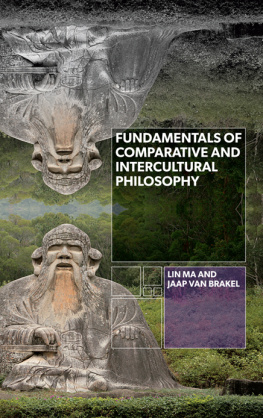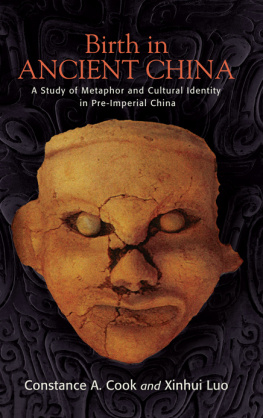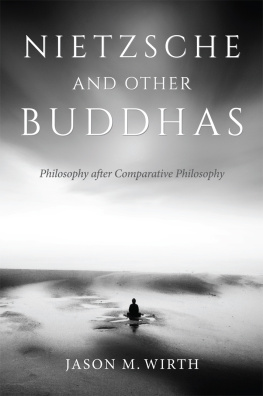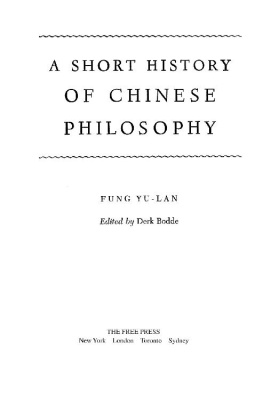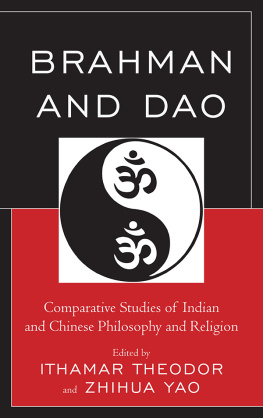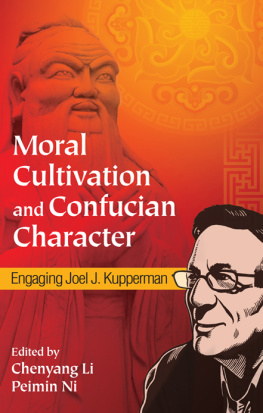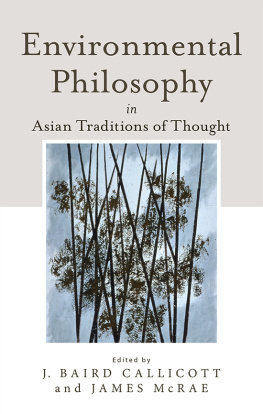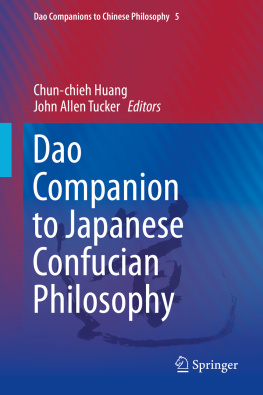Fundamentals of Comparative and
Intercultural Philosophy
SUNY series in Chinese Philosophy and Culture
Roger T. Ames, editor
Fundamentals of
Comparative and Intercultural
Philosophy
Lin Ma and Jaap van Brakel
Work on this book is supported by Chinese Fund for the Humanities and Social Sciences, the Fundamental Research Funds for the Central Universities, and the Research Funds of Renmin University of China.
Published by State University of New York Press, Albany
2016 State University of New York
All rights reserved
Printed in the United States of America
No part of this book may be used or reproduced in any manner whatsoever without written permission. No part of this book may be stored in a retrieval system or transmitted in any form or by any means including electronic, electrostatic, magnetic tape, mechanical, photocopying, recording, or otherwise without the prior permission in writing of the publisher.
For information, contact State University of New York Press, Albany, NY
www.sunypress.edu
Production, Jenn Bennett
Marketing, Michael Campochiaro
Library of Congress Cataloging-in-Publication Data
Ma, Lin, 1970
Fundamentals of comparative and intercultural philosophy / Lin Ma and Jaap van Brakel.
pages cm. (SUNY series in Chinese philosophy and culture)
Includes bibliographical references and index.
ISBN 978-1-4384-6015-4 (hardcover : alk. paper) ISBN 978-1-4384-6017-8 (e-book) 1. Philosophy, Comparative. I. Title.
B799.M23 2016
109dc23 2015015588
10 9 8 7 6 5 4 3 2 1
This picture is photographed by MA Lin in Qingyuan Mountain, Quanzhou, Fujian, China. Text on stele: qingniu xiqu, ziqi donglai the black ox goes to the west; a purple air flows from the east. This description is connected with the legendary story of Laozi when he was requested to write down the 5,000 characters of the Daodejing. Purple air flowing from the east signifies the appearance of a propitious omen.
Contents
Note on Referencing
In this work, sources are usually referred to in accordance with the author-year system, except that we do not always mention the year of publication if there is only one entry under the authors name in the list of references. Subsequent references to the same work of the same author only give the page number in round brackets. In appropriate cases a work is listed under the year of the first publication of the work in the list of works cited. The publication year of the edition consulted is given after the name of the publisher.
Wittgensteins writings are referred to by common abbreviations instead of year of publication, for example PI for the Philosophical Investigations , followed by section number (preceded by ), or, in rare cases, page number. The original German text is taken to be decisive in case of a discrepancy between the English and German text (which are often published together on opposite pages).
We refer to Heideggers writings by year of composition (or, in rare cases, year of publication), followed by the page number(s) of an English translation (if available) and the page number(s) of the German original (separated by a slash). Citations follow existing translations, but in many cases we have revised them. In case of ambiguity the German text is decisive.
Chinese and Japanese authors are referred to by last name followed by given name(s); other authors usually only by last name. Names of classical Chinese scholars are given in pinyin, followed by simplified characters. On first occurrence, Chinese words or phrases in the main text are given in pinyin (without tone marks), followed by the Chinese character(s). A possible English translation in some contexts may be added in round brackets, but it should be emphasized that this is never more than pointing to a hypothetical family resemblance, which requires further investigations. In such investigations sometimes we engage, but not always. The Index may give more places where the use and meaning of particular Chinese characters is elucidated. The Chinese character is omitted on subsequent pinyin renderings, unless it is needed to avoid ambiguity (e.g., when two characters have the same pinyin). For citing classical Chinese works we have consulted the Thesaurus Linguae Sericae (http://tls.uni-hd.de/). In appropriate cases the original Chinese text of a long citation is given in a note without pinyin transliteration. Unless otherwise mentioned, translations are our own. If a particular translation is cited, it is referred to by the name of the translator. We use simplified characters except in citations from classical sources. In appropriate circumstances we add the traditional character in square brackets after the simplified character.
Usually we do not use quotation marks when mentioning (instead of using) a term or phrase. The difference will be clear from the context, or circumlocutions are used such as: the word philosophy, the expression zhexue , and so forth. Unless otherwise noted, emphases in citations are from the original.
In alphabetizing the subject index and list of works cited, articles and particles are overlooked. Hence, for das Ge-stell look under G. However, names with prefixes, such as de , da , van , or von , are alphabetized under the prefix; for von Humboldt look under V. Adjectives are usually to be found under nouns they modify; for example, for radical translation see translation; radical. Expressions consisting of two nouns are usually listed under the last word. For example, for principle of mutual attunement see under attunement; principle of mutual. Chinese words in the Index are given in pinyin followed by character(s), but no English translation is offered, so as to avoid context-free translation. Names of peoples or languages are listed in the Index using one word; for example: Dinka instead of language; Dinka.
Symbols and Abbreviations
| logical implication ( IF THEN ) |
| logical equivalence (AB AND BA) |
| indicates a relation of family resemblance, is similar to |
| existential quantifier ( x , there is an x such that) |
| is embedded in/among the cluster of |
| logical negation ( NOT ) |
| logical disjunction ( OR ) |
| logical conjunction ( AND ) |
| BCT, BCTs | Basic Colour Term(s) |
| CTP | Chinese Text Project (http://ctext.org/) |
| CS, CSs | conceptual scheme(s) |
| CS {C n }, CS {E n } | a meaningful collection of FR-concepts |
| FR-concept | family resemblance concept |
| FR-extension | extending FR-concepts across languages and traditions |
| FR(C), FR(E) | a particular Chinese/English FR-concept |
| FR(C n ), FR(E n ) | a number of Chinese/English FR-concepts |
| FR(C n ), FR(E n ) | a hybrid concept, the sum or average of a number of concepts |
| meta-CS | meta-conceptual-scheme |
| NNSSL | no need to speak the same language |
| PC | principle of charity |
| PH | principle of humanity |
| TLS | Thesaurus Linguae Sericae (http://tls.uni-hd.de/) |

